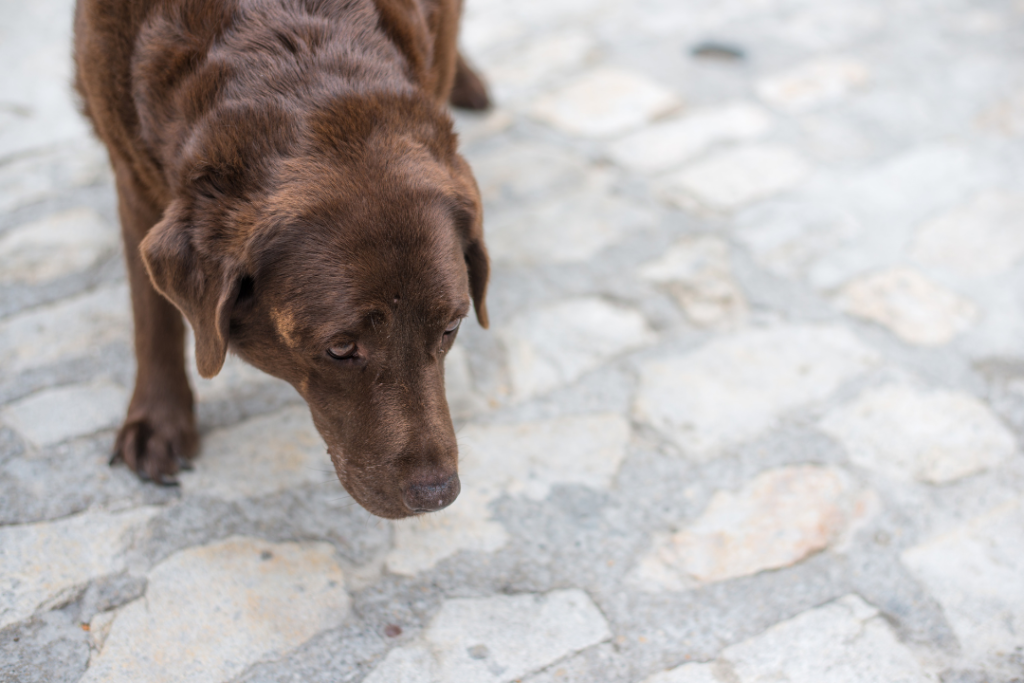Why Does My Dog Look Away From Me?
As dog owners, we love to make eye contact with our furry friends to feel connected and show affection. However, sometimes dogs look away, and this behavior can be confusing and concerning for pet owners. In this blog post, we will explore the reasons why dogs look away, body language cues to look for, and tips for responding to this behavior.

Reasons Why Dogs Look Away
There are various reasons why dogs may look away from their owners, such as avoiding direct eye contact, being distracted by something in the environment, feeling anxious or stressed, or wanting to be left alone.
Avoiding direct eye contact: Dogs may avoid direct eye contact as a sign of submission or discomfort. When dogs feel threatened, they may avoid making eye contact with the perceived threat to prevent an escalation of the situation.
Being distracted by something in the environment: Dogs are naturally curious animals and may look away if they notice something interesting or new in the environment.
Feeling anxious or stressed: Dogs may look away if they are feeling anxious or stressed. This behavior can be a sign that they are uncomfortable in a situation or that they are experiencing fear or anxiety.
Wanting to be left alone: Dogs are independent animals and may look away if they want to be left alone. This behavior can be a sign that they need some alone time or that they are not interested in interacting at that moment.

Body Language Cues To Look For
While looking away can be a sign of discomfort or anxiety, it’s not always the case. Other body language cues can help owners determine their dog’s mood, such as ear position, tail position, and lip licking, stiffness, or yawning.
Ear position: The position of a dog’s ears can indicate their mood. For example, if a dog’s ears are forward, they may be alert or curious, while if they are pinned back, they may be anxious or fearful.
Tail position: A dog’s tail position can also indicate their mood. If their tail is wagging wide, and loosely, they may be happy or excited, while if it is tucked between their legs, they may be scared or anxious.
Stiffness in the body: A dog’s body gets stiff when they are uncomfortable or anxious. This is an indicator to let them be so they can have some space and realize everything is okay. If they feel threatened or overwhelmed, you may see them “freeze” as well. The best thing to do is give them some space.
Lip licking or yawning: Dogs may lick their lips or yawn to show that they are feeling uncomfortable or stressed. This behavior can be a sign that they need some space or that they are feeling overwhelmed.
Tips For Responding To This Behavior
It’s essential to respond appropriately to your dog’s behavior to ensure a happy and healthy relationship between you and your furry friend. Some tips for responding to this behavior include:
Giving the dog space if they seem uncomfortable or anxious: If your dog is exhibiting signs of anxiety or discomfort, such as looking away, it’s essential to give them space. Avoid approaching them or making direct eye contact and allow them to relax.
Using positive reinforcement to encourage eye contact: Positive reinforcement can be an effective way to encourage your dog to make eye contact with you. Reward them with treats or praise when they look at you, and gradually increase the duration of eye contact over time.
Ensuring the dog has a comfortable and safe environment: Dogs need a comfortable and safe environment to feel secure and relaxed. Make sure your dog has a comfortable place to sleep, access to water and food, and a safe space like a crate, where they can retreat if they need some alone time.
Emphasizing the importance of seeking professional help if the behavior persists or worsens: If your dog’s behavior persists or worsens, it’s essential to seek professional help from a dog trainer or behaviorist. They can help you identify the root cause of your dog’s behavior and provide guidance on how to address it effectively.
Conclusion
In conclusion, dogs may look away from their owners for various reasons, including avoiding direct eye contact, being distracted, feeling anxious or stressed, or wanting to be left alone. While this behavior can be confusing and concerning for pet owners, it’s essential to observe your dog’s body language cues to understand their mood better. By responding appropriately to your dog’s behavior, such as giving them space or using positive reinforcement, you can ensure a happy and healthy relationship between you and your furry friend. Remember, if your dog’s behavior persists or worsens, seeking professional help from a dog trainer or behaviorist can be the best course of action.
